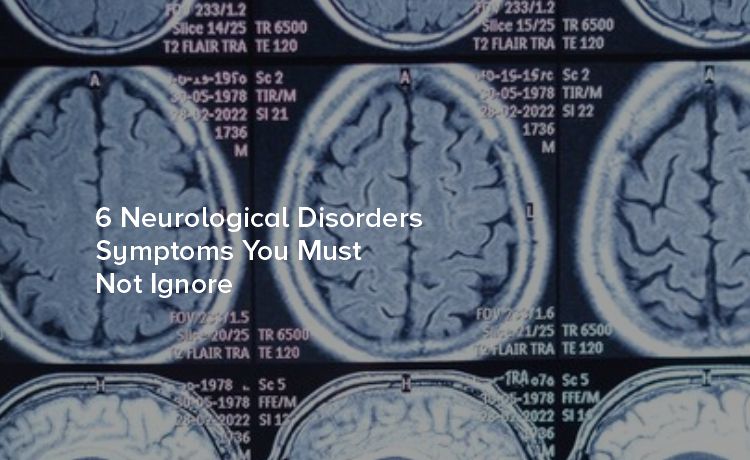
The human brain is a marvel of biological engineering, coordinating every action, thought, and feeling we experience. However, like any complex system, it can be susceptible to various disorders. Neurological disorders can be particularly insidious, as their symptoms are often subtle, varied, and easily mistaken for other less serious conditions. Awareness of these symptoms and seeking timely medical advice can make a significant difference in outcomes.
What to Watch For
Everyone experiences headaches occasionally, but when they become a regular occurrence or increase in intensity, they can indicate an underlying neurological issue.
Chronic daily headaches: Headaches that occur 15 days or more a month.
Thunderclap headaches: Sudden, severe headaches that peak within 60 seconds can be a sign of a serious condition such as a brain aneurysm.
Headaches with other symptoms: Such as dizziness, blurred vision, or numbness.
Possible Conditions
Migraine: A chronic condition characterized by intense, throbbing headaches often accompanied by nausea and sensitivity to light and sound.
Cluster headaches: Severe, recurrent headaches that occur in cyclical patterns or clusters.
Brain tumor: Persistent headaches can sometimes be a symptom of a brain tumor, especially if accompanied by changes in vision, speech, or behavior.
What to Watch For
Vision changes that occur suddenly or intermittently should never be ignored, as they might signal a neurological disorder.
Double vision: Seeing two images instead of one.
Blurry vision: An inability to see clearly, not corrected by glasses.
Partial or complete vision loss: In one or both eyes.
Possible Conditions
Multiple sclerosis (MS): An autoimmune disease affecting the central nervous system that can cause vision problems due to inflammation of the optic nerve.
Stroke: Sudden loss of vision can be a sign of a stroke, especially if accompanied by weakness or numbness on one side of the body.
Brain tumors: Tumors pressing on the optic nerve can lead to vision changes.
What to Watch For
Occasional numbness or tingling is usually harmless, but persistent or progressive sensations can indicate a neurological problem.
Localized numbness: Affecting specific parts of the body like hands, feet, or face.
Unilateral numbness: Numbness or tingling on one side of the body.
Progressive spread: Starting in one area and spreading to another.
Possible Conditions
Peripheral neuropathy: Damage to peripheral nerves often seen in conditions like diabetes.
Multiple sclerosis: Numbness or tingling can be one of the first symptoms of MS.
Stroke: Sudden numbness, especially on one side of the body, can indicate a stroke.
What to Watch For
Unexplained weakness or loss of muscle strength, especially if it occurs suddenly, should be promptly evaluated.
Muscle atrophy: Noticeable decrease in muscle mass.
Difficulty performing routine tasks: Such as lifting objects or walking.
Weakness in one limb: Or on one side of the body.
Possible Conditions
Amyotrophic lateral sclerosis (ALS): Progressive neurodegenerative disease affecting nerve cells in the brain and spinal cord.
Guillain-Barre syndrome: Rare condition where the immune system attacks the nerves, leading to muscle weakness.
Stroke: Sudden weakness, especially on one side, can signify a stroke.
What to Watch For
Changes in cognition, such as memory loss, confusion, or difficulty concentrating, can be early signs of a neurological disorder.
Memory loss: Not typical of normal aging.
Difficulty planning or solving problems: Struggling with tasks that were once simple.
Confusion and disorientation: Especially in familiar environments or situations.
Possible Conditions
Alzheimer’s disease: Progressive disease that destroys memory and other mental functions.
Dementia: General term for a decline in cognitive function severe enough to interfere with daily life.
Parkinson’s disease: Neurodegenerative disorder affecting movement and sometimes cognitive functions.
What to Watch For
Uncontrolled or involuntary movements can be distressing and may indicate an underlying neurological disorder.
Tremors: Rhythmic shaking, often starting in the hands.
Tics: Sudden, repetitive movements or sounds.
Seizures: Sudden, uncontrolled electrical disturbances in the brain.
Possible Conditions
Parkinson’s disease: Characterized by tremors, rigidity, and bradykinesia (slowness of movement).
Tourette syndrome: Neurological disorder involving repetitive movements or unwanted sounds (tics).
Epilepsy: Neurological disorder marked by recurrent seizures.
Seeking Help
If you or someone you know is experiencing any of these symptoms, it’s crucial to seek medical advice as soon as possible. Early diagnosis and treatment can significantly affect outcomes and quality of life. Here are a few steps you can take:
Consult a specialist: Neurologists specialize in diagnosing and treating neurological disorders.
Document symptoms: Keeping a symptom diary can help healthcare providers understand the frequency and severity of your symptoms.
Follow medical advice: Adhering to prescribed treatments and attending follow-up appointments is vital for managing neurological conditions.
Neurological disorders can have a profound impact on one’s life, but early detection and intervention can make a significant difference best neurologist in Hyderabad. By being aware of the symptoms and taking prompt action, you can ensure that you or your loved ones receive the necessary care and support. If you’re experiencing any of these symptoms or have concerns about your neurological health, don’t hesitate to reach out to a healthcare professional.
Stay informed, stay vigilant, and take proactive steps towards maintaining your neurological health. Your brain is your greatest asset—take good care of it.
If you found this post helpful, you might also be interested in:
"Understanding Multiple Sclerosis: Symptoms, Diagnosis, and Treatment"
"Epilepsy: What You Need to Know About Seizure Disorders"
"Living with Parkinson’s Disease: Tips for Managing Symptoms"
By staying informed and proactive, we can all contribute to better neurological health for ourselves and our communities.
Feel free to share this post with friends and family who might benefit from this information. For more insights and updates, follow our blog and stay connected.